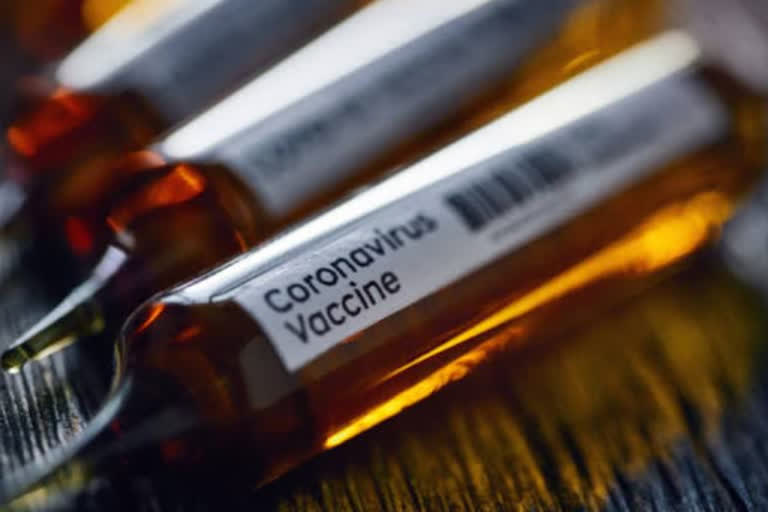Hyderabad: As the whole world has united to defeat the coronavirus pandemic, efforts are on to develop the vaccine for the contagious infection.
The United Nations's UNICEF administers life-saving vaccines to half of the world's children each year. The vaccine protects millions of children from tetanus, measles, polio, yellow fever and whooping cough. It buys 200 crore doses of vaccines a year and protects children in 100 countries.
Today, UNICEF is the largest buyer of vaccines in the world and with this UNICEF will be also taking the responsibility of administering COVID-19 vaccine in 92 poor countries soon.
Vaccine distribution will be a major challenge:
GAVI-the vaccine alliance is leading the Covax program, which aims to vaccinate people around the world. Under this program, UNICEF is responsible for collecting and distributing COVID vaccines to low-income countries. From among the many COVID vaccines that are currently undergoing clinical trials, the successful ones will require the preparation and distribution of hundreds of millions of doses over the next two years. A total of 28 vaccine manufacturers in 10 countries are ready to produce Covid-19 vaccines.
Strategic partnerships:
Vaccinating the world's population is a costly affair. Production will begin once the clinical trials are completed, pre-purchase agreements have reached, and government and private companies will provide funding and regulatory approvals. UNICEF will distribute the vaccine to developing countries in collaboration with a revolving fund of the Pan American Health Organization (PAHO). The Covax program will be attended by 80 rich countries. These countries will allocate funds from their budgets for the purchase of the COVID-19 vaccine. UNICEF also acts as a coordinator for vaccine purchases on their behalf. Since rich countries want to vaccinate their people with their funds, the funds of these countries serve as initial investments to increase vaccine production. The rich countries will sign an agreement with UNICEF on September 18 to participate in the Covax program.
Read:| COVID vaccine won't be widely available until mid-2021 says CDC Director
The goal of the Covax program is to see the COVID vaccine available to all countries around the world. UNICEF Covax will complete the program in collaboration with the World Health Organization, the World Bank, GAVI-the vaccine alliance, PAO, SEPI, and the Bill & Melinda Gates Foundation.
The financial assistance of the above organisations is very helpful in vaccinating the people of the poor countries. The GAVI-the vaccine alliance and UNICEF have provided life-saving vaccines to 76 million children over the past 20 years, preventing 1.3 million deaths. That experience will contribute to the successful completion of the COVID-19 vaccination program.
Humongous program:
If the successful production of hundreds of billions of doses of the COVID vaccine, which is now undergoing clinical trials, is a massive program for the world, shipping them to countries and distributing them to the public in a safe condition is an even bigger challenge. The International Air Transport Association (IATA) has warned governments and industries to start preparations for it from now on. It is important to note that the transportation of vaccines by air is not easy. Transporting the COVID vaccine safely and rapidly will remain an unprecedented feat in the records of this century. Due to COVID crisis currently, air travel has either been cancelled or drastically reduced throughout the world. As a result, the required numbers of planes are not available; many planes have been shifted to hangers. UNICEF, WHO, and GAVI are concerned that it could be problematic to get the COVID vaccine to destinations quickly in future.
Read:| US announces next steps of its withdrawal from WHO-led Covid vaccine effort
8,000 Boeing 747 jumbo jets will be needed to deliver one vaccine per head to the world population of 780 million. One can imagine the situation if two doses are required!
In affluent countries with local vaccine production centres, vaccines can be transported in refrigerated vehicles from one region to another. But international transport requires aircraft. After landing planes in poor countries, distributing the vaccine by road to people in the nook and corner of
the country is a big challenge due to lack of a sufficient number of vehicles with refrigeration and unsafe road infrastructure in these countries. UNICEF is working with governments, production, procurement, transportation, and delivery agencies to overcome these barriers and complete the COVID vaccination program.
Huge security for transportation:
All permits must be obtained as soon as the vaccine is produced, and vaccine doses must be stored at the specified temperature and delivered rapidly to destinations around the world. Refrigeration facilities will be a top priority as the vaccine capacity will be reduced wherever any mistake is made. Work on building new cold storages required and making modifications to old refrigerated warehouses should start from now on.
he vaccine requires a large number of well-trained staff with the knowledge of ideal temperature to store the vaccine securely. Continuous monitoring is required to ensure that the vaccine does not spoil during the storage and transportation process. If required, sensitive devices must be set up for that. Safety arrangements must be made to ensure that vaccines are not stolen while being transported by air.
While crossing the borders of the respective countries, the health and customs officials must process clearance-related documentation and permissions without any delay. Planes carrying vaccine should be able to land at airports or continue their journey in the air without landing. Landed flight crew should be exempted from quarantine and curfews. As soon as the aircraft lands in a country, permission to deliver vaccines must be granted on a priority basis to shift and store it in a safe condition as soon as possible. This is very important to prevent the vaccine from spoiling due to the difference in temperature.



